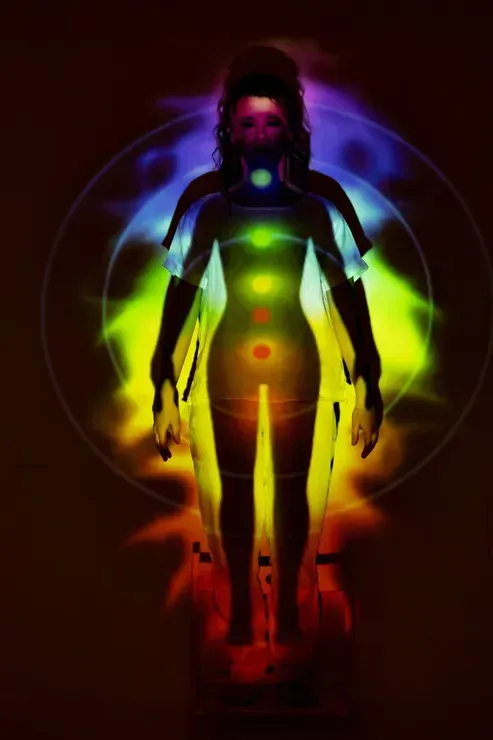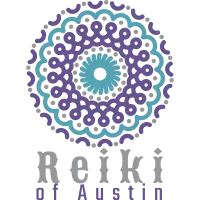Reiki of Austin
Reiki Healing in Austin
Are you looking for the best reiki therapy in Austin, Texas? Look no further!
Welcome to Reiki of Austin! If you live in or around Austin, TX and have ever wondered, “who is the best reiki practitioner near me?” then you have come to the right place! Our Austin reiki master healer will give you the best care available and will make sure you feel comfortable during your entire experience. Reiki treatment, attunements, healing sesions are conducted through in-person or virtual visits.

Make an Appointment
Please fill out the information below and we will get back to you to schedule an appointment.

Reiki Attunement in Austin TX
Ready for your next attunement? Give us a call to schedule an appointment!
Looking for the best Reiki practitioner in or around Austin Texas? Look no further, Reiki of Austin is here for you and just a phone call away. Relax your body and mind and realign your chakras with Reiki of Austin. We offer the most convenient Reiki service in the ATX area. We do both in person and virtual attunements! Come to our office or we'll come to you. Do you want increased relaxation? How about emotional, mental, and spiritual well being? Reiki therapy helps with not only these things, but also enhances overall quality of life and realigns chakras. We offer both in-person as well as virtual attunements. Call for a free consultation today 512-548-8330
Best Reiki Near Me - Austin, TX
If you’re new to the Austin area and you’ve tried reiki healing in the past and are somewhat familiar with reiki massage, then you’re probably asking yourself, “where can I find reiki healing near me?” and we have good news for you: Reiki of Austin is ready to offer attunements and reiki massage to help you relax, increase your spiritual well being, and realign your chakras. Whether you’re looking for reiki for anxiety or just relaxing reiki massage, or even mind-clearing reiki meditations, our trusted and professional reiki practice will provide the reiki energy healing you’re looking for.


Reiki Healing Online Austin
Perhaps you don’t live in Austin or near any reiki practitioner and think “what do I do if there is no reiki near me?” Don’t worry, there is such a thing as distance reiki--yes, you read that right, we can do reiki distance healing virtually! This is such a life saver because you no longer need to waste time searching for “reiki master near me” or “reiki treatment near me” because we can perform reiki treatment for anyone, anywhere. So, if you live in or around Austin, TX and are comfortable coming to our reiki center, great! But if you don’t live near Austin, and you can’t find a certified reiki master near you, do not worry, Reiki of Austin can still provide you with distance reiki treatments through our reiki online program.

Reiki Energy Healing
Channel Universal Energy
Practitioners believe that healing is achieved by channeling the universal energy known as qi (pronounced "chi"). This energy is also used in tai-chi exercises. Some believe it is the life force energy that surrounds us all. This energy is believed to penetrate the body. Reiki experts say that although this energy cannot be measured by modern scientific methods, it can still be felt by those who tune in.
Holistic Treatment
Reiki is believed to help with relaxation, aid in body's natural healing processes and improve emotional, mental and spiritual well-being. It's also believed to help with emotional stress relief, deep relaxation, and overall well-being.
Treat Many Conditions
These are some conditions that Reiki can be used to treat:
Cancer
Heart disease
Anxiety
Depression
Chronic pain
Infertility
neurodegenerative diseases
Autism
Crohn's Disease
Fatigue syndromes
Ultimate Relaxation
According to the University of Minnesota Reiki sessions may have a healing effect on patients. Reiki is described as "intensely relaxing" by those who have received it:
"I feel very refreshed, and seem to think more clearly."
"I believe I fell asleep."
"I cannot believe how hot your hands are!"
"I feel more relaxed after a massage than I did before."
"My headache is gone!"
Reiki and Cancer
Reiki is said to make cancer patients feel better. It may help them relax. According to Cancer Research U.K., another reason could be that the therapist spends a lot of time with patients and touches them. Patients who are overwhelmed by invasive therapy or fear can feel a sense of calm and security.
Different Experiences
Different experiences are reported by different people. Some people report feeling the practitioner's hands heat up, while others describe cooling their hands. Others feel like they are vibrating with energy. Most people report feeling a deep relaxation and release of stress.
Reiki Levels

First Degree
The first degree opens up the energy channel, allowing the student to channel Reiki at the physical level. It is one Usui Tibetan initiation. The student might feel a subtle energy in his hands after the initiation. You may feel a warmth, tickling, buzzing or a strange sensation in your hands. Sometimes, it can take a while before the student feels the energy.
Anyone can apply for this level. It does not require any prior experience. It can usually be taught in one weekend. Initiation connects the student's energy to the Universal Energy. The initiation removes energy blockages, balances and harmonizes the major energy centers known as chakras. Initiation opens the central energy channel that runs from the crown of your head to the bottom. It permanently connects the student with the Universal Energy, allowing him the ability to channel that energy whenever he wants.
Although the initial amount of energy that is channeled after initiation may vary, it will become more consistent as the student continues to use Reiki. The energy at this level is 80-90%. The rest are on the spiritual, mental/emotional, and spiritual levels.

Second Degree
The student must have completed the First Degree, and had enough practice to allow the energy to flow with less variation in intensity. The First Degree is usually completed after at least three months. Regular self-treatments should be done by the student. The second degree Reiki initiation opens up the central channel to a higher level and allows for more energy to be channeled. Three symbols are given to the student
Power Symbol
This allows for more energy to be channeled. This allows the student to use the energy connection to treat himself or others. The symbol allows the student to access the Universal energy to purify and cleanse places energetically. You can use the power symbol to protect your home and car.
Mental Symbol
This allows students to access a higher level of energy. It works on the emotional and mental levels of those who receive it. It can be used to heal the mind and emotions. It can be used to help with anger, sadness and anxiety, as well as problems in relationships. It can also be used to help with anxiety, sadness, depression, and problems with relationships. It can also be used as a way to stop smoking.
Distance Symbol
This allows for healing to be done remotely. The recipient doesn't have to be present physically, but can be located anywhere in the world. You can use this symbol to send Reiki into future. The student can ask for Reiki to be sent to a specific time and the energy will arrive when it arrives. This works also for the past. You can send Reiki to specific events or the root cause of a problem in the past

Third Degree - Inner Master
The student's ability to channel the Universal Energy is increased by the third degree of initiation. The Usui Master symbol is given to the student, which allows him or her to connect to their inner truth. The Inner Master level is also known as the Inner Level. It involves realizing that each individual is responsible for his or her own destiny and is in control of his/her own life. This knowledge may help the student find his true path and make life changes.

Master Level Usui Tibetan
The student receives the four Tibetan Master Symbols and the central energy channel is opened again. The student is taught the techniques necessary to initiate Reiki.
The Reiki Master is responsible for teaching Reiki to others. He is able to instill Reiki energy in others, so they can use it themselves on their own path of self-discovery.
The Benefits of Reiki Healing
Stress Reduction
In today's fast-paced world, stress has become a common affliction, impacting individuals of all ages and backgrounds. The constant pressure to perform, coupled with the endless distractions of modern life, can leave us feeling overwhelmed and depleted. Reiki offers a sanctuary amidst the chaos, providing a gentle yet powerful antidote to the stresses of everyday life. Through the healing touch of Reiki practitioners, clients can experience a profound release of tension, allowing the body and mind to enter a state of deep relaxation and rejuvenation. This restoration of balance is essential for maintaining overall health and well-being in an increasingly demanding world.
Pain Management
Whether you're suffering from physical injuries resulting from accidents or dealing with chronic conditions such as fibromyalgia or arthritis, Reiki can serve as a complementary therapy to conventional medical treatments. By channeling healing energy into the affected areas, Reiki promotes natural pain relief and accelerates the body's innate healing processes. Many clients report significant improvements in mobility, reduced inflammation, and enhanced overall well-being following regular Reiki sessions. Additionally, the holistic nature of Reiki means it addresses not just the physical symptoms but also the underlying emotional and energetic imbalances contributing to the pain, fostering comprehensive healing and recovery.
Emotional Healing
Unresolved emotions have a profound impact on our overall well-being, often manifesting as physical ailments such as tension headaches, digestive issues, or chronic pain. Reiki's holistic approach recognizes the interconnectedness of mind, body, and spirit, offering a safe space for emotional exploration and healing. Through gentle energy work, Reiki practitioners help clients identify and release deeply ingrained emotional blockages, allowing for profound emotional release and healing. By addressing the root causes of emotional distress, Reiki promotes a sense of inner peace, clarity, and resilience, empowering individuals to move forward with greater ease and vitality in their lives.
Enhanced Well-being
By restoring balance to the body's energy centers, or chakras, Reiki facilitates a harmonious flow of life force energy throughout the entire being. This balanced energy flow not only promotes physical health and vitality but also enhances mental clarity, emotional stability, and spiritual connection. Each chakra corresponds to different aspects of our physical, emotional, and spiritual selves, and when these energy centers are in alignment, we experience a profound sense of wholeness and well-being. Through Reiki, individuals can experience a deeper understanding of themselves and their interconnectedness with the universe, leading to a more fulfilling and balanced life in all aspects.
The Meaning of "Reiki"
The word “Reiki” means “mysterious atmosphere, miraculous sign.” It comes from the Japanese words “rei” (universal) and “ki” (life energy). Reiki is a type of energy healing. Contact Reiki of Austin today to learn more and begin treatment.
Reiki treatment in Austin
Reiki is a Japanese alternative medicine known as energy healing. Reiki practitioners use a technique known as palm healing, or hands-on healing. This involves the transfer of "universal energy" through the practitioner's palms to the patient to promote emotional and physical healing. Reiki is a healing method that relies on the principle of being able to channel energy through touch into the patient in order to activate natural healing processes and restore emotional and physical well-being.
